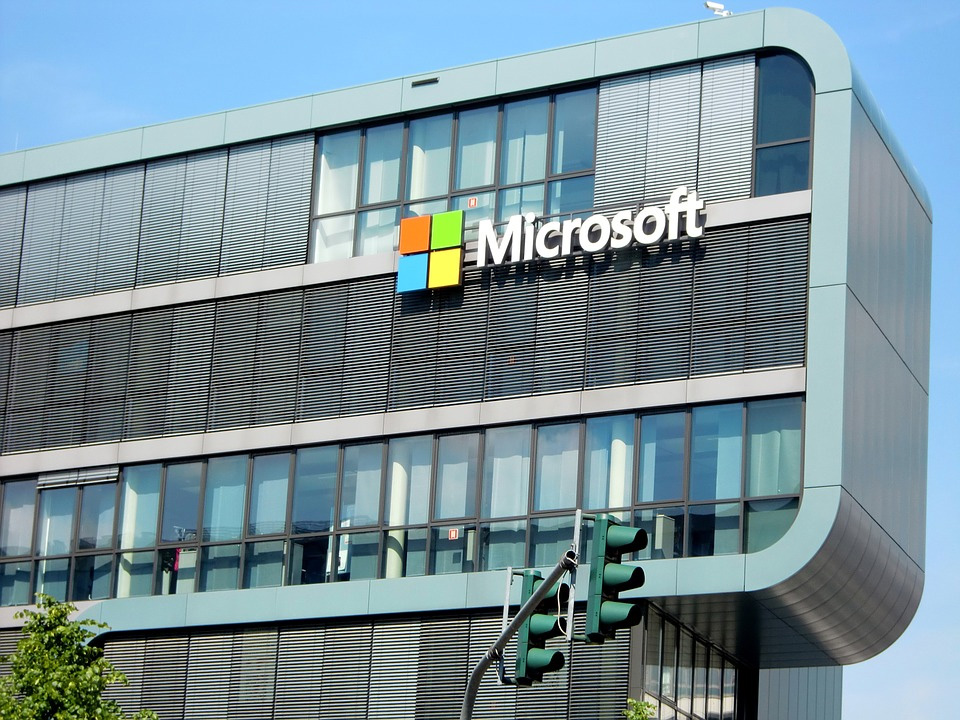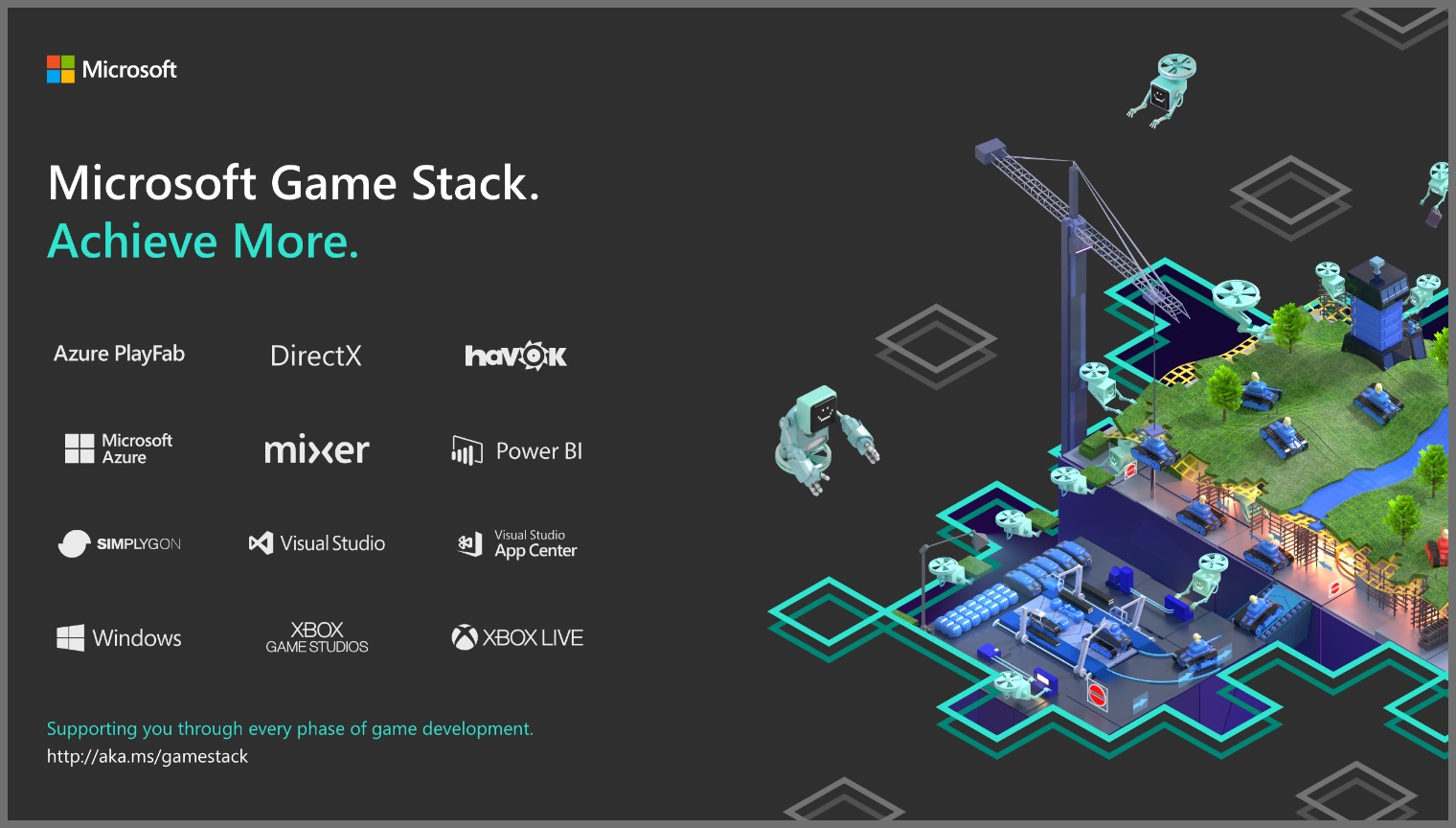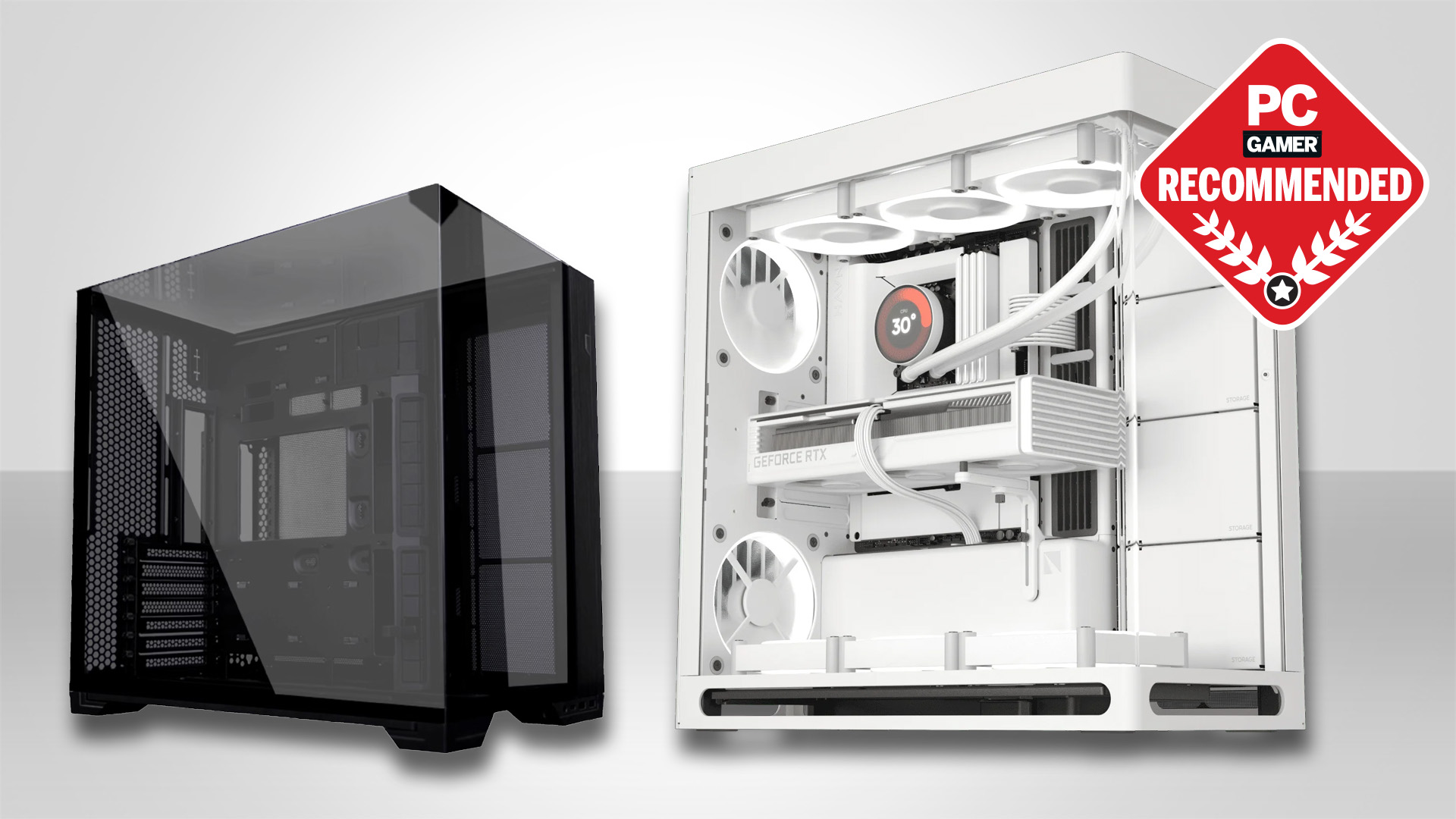Microsoft is adapting Xbox Live's matchmaking and chat features for PC and other platforms
The company brings its already existing game development services under one roof via Game Stack

This morning, Microsoft announced a new game developer-focused initiative that brings its already existing game-development platforms, tools, and services under a single ecosystem called Game Stack. Those services include Azure, DirectX, Visual Studio, Xbox Live, App Center, Havok, and others, including PlayFab, a complete backend for building and operating live, multiplayer games. Microsoft's goal with bundling all those services together (which are also available still à la carte) is to make it easier for developers to continually monitor their games' performance and communities, which can mean better game experiences for players.
This initiative also means that Microsoft's Azure cloud, which is already available in 54 regions globally, plays a critical role in Game Stack. The global scale of Azure will be the foundation for Project xCloud streaming technology, so developers will have the ability to reach any gamer around the world, regardless of what device they may be gaming on. Cloud gaming is already starting to make PC gaming more accessible, and combining something like PlayFab with Azure only increases cross-platform possibilities within Microsoft's gaming network.
But how does PlayFab integrate with Azure, and does what that mean for gamers, specifically PC gamers? The two services together allows developers "to safely launch and scale up multiplayer games by dynamically hosting [their] servers with Azure cloud compute," Kareem Choudhry, Corporate Vice President of Cloud Gaming, said this morning in a press release. "PlayFab supports all major devices, from iOS and Android, to PC and Web, to Xbox, Sony PlayStation, and Nintendo Switch; and all major game engines, including Unity and Unreal. PlayFab will also continue to support all major clouds going forward."

To help reach gamers in new ways, five new PlayFab services have been announced—and three of those services can have a direct impact on players' experiences, depending on how/if developers choose to integrate them into their games. The first of those three important services is PlayFab Matchmaking, adapted from Xbox live matchmaking, but now available to all games and devices, including PC of course.
The second is PlayFab Party, which was adapted from Xbox Party chat, but is also now available for all games and devices. Microsoft announced speech-to-text translation for Xbox One and PC games chat back in March of 2017, but PlayFab Party in this case is able to leverage Azure for real-time translation in addition to transcription. Language barriers in multiplayer games could be a thing of the past.
The third is PlayFab User Generated Content, which allows players to create and share user generated content with other players under one monetary ecosystem. This technology was originally built for the Minecraft marketplace, but now it's available for developers to utilize in any multiplayer game they are making.
It's also worth noting that public trials for PlayFab services on the xCloud will start later this year, but private trials are currently underway.
Keep up to date with the most important stories and the best deals, as picked by the PC Gamer team.
At a time when cloud gaming and Netflix-like subscription models are starting to gain traction, it's important that developers are provided with the right tools to navigate developing games for that nearly uncharted landscape. This is one of Microsoft's goals with Game Stack, and hopefully its intent does set-up developers to create great experiences for gamers in a quickly-changing, multiplayer game landscape.


